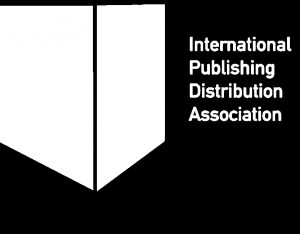The8th International Digital Distributors Meeting is organised once more by IPDAin collaboration with GSR Foundation within the umbrella of Readmagine.
In this occasion the challenge proposed to the participants was to discuss how to ensure the positive pattern in book markets continues throughout the next few years. This idea was linked to the European approach of this edition and focused on the means to overcome some threatening trends that underlie those good results (namely, the bigger role of huge platforms such as Amazon). Precisely, the first session was titled «Made in Europe to the world», moderated by Arantza Larrauri (Managing Director atLibranda) presented two different European business cases for digital books:Bookwire and Streetlib.
In this video you can follow the interesting conversation between Jens Klingelhöfer (CEO of Bookwire), Giacomo D’Angelo (CEO of Streetlib) and Arantza Larrauri (Europe and LATAM market manager at De Marque).
Larrauri organised the conversation around some important topics related to the challenges for internationalisation of the European publishing companies. She addressed the following five questions:
In the life of a company there are several critical milestones, the first one the birth. And for that it is necessary to cultivate entrepreneurial spirit. From your point of view, does the political, legal, and cultural context in Europe contribute to developing this state of mind in young people or it does not? How can the education policies that governments put in place in the different countries encourage young people to create their own business?
Traditionally the territorial and cultural atomization of Europe has been considered a barrier (or at least a challenge) for the international expansion of European companies since economies of scale are not so feasible. But, in fact, this can also be an advantage because this idiosyncrasy can help to develop a sensibility that enables managers to work with different people in different cultures. What are the main challenges that a European start-up must face when trying to expand within Europe and beyond? Are these challenges the same in organic growth and in acquisition strategy growth? Is the acquisition strategy the most effective to accelerate growth in such a complex diversity?
United States, China, India, Europe… When looking at the global arena, we are seeing a global and indeed urgent debate on the need of promoting ethics, social responsibility, sustainability, and data protection compliance. How can European companies make the difference and innovate while leading and bringing these values to the world?
The European Union “Next generation funds” for the recovery are the most ambitious program that will dedicate the astronomic amount of 8 hundred thousand million euros that will be transferred to the different EU countries to incentivize development of companies and creation employment in Europe (based on 4 axes: digital, green, sustainable, and innovative). Are these kinds of programs an opportunity for medium and small size companies that want to grow?
To end the conversation, can you mention 1 or 2 European companies, no matter the sector or industry, that you admire for having done a great job at any level in their international expansion? What can we learn from their case study?





